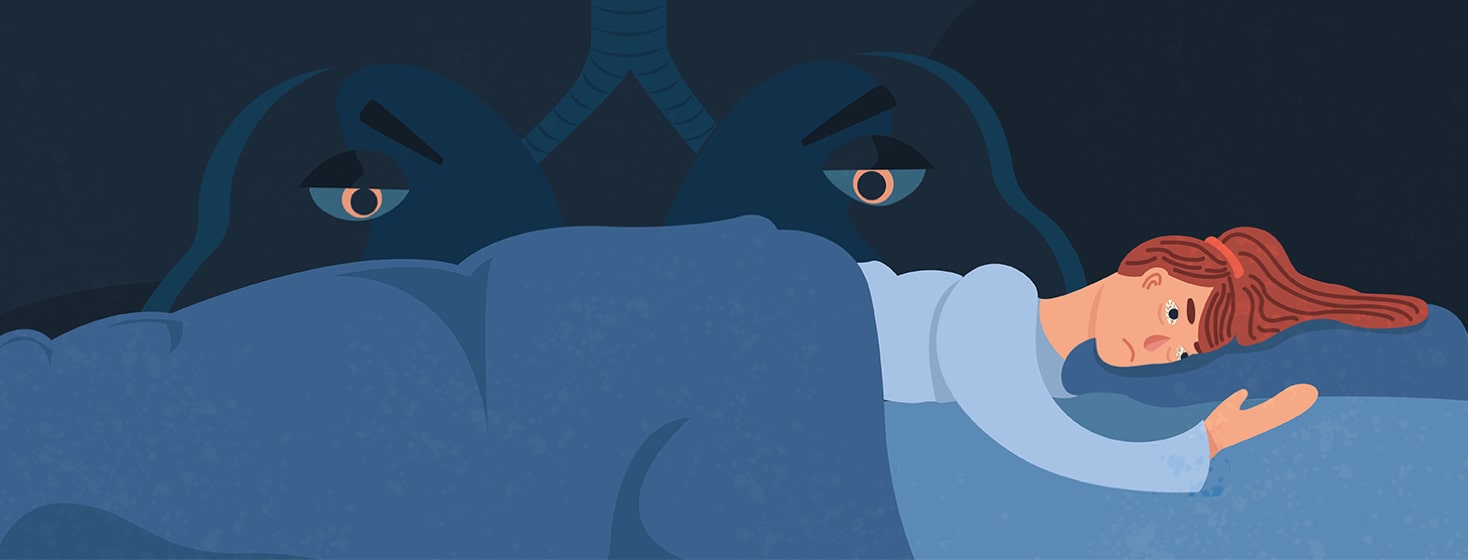Wide Awake: How CF Affects Sleep
Sleep disturbances are extremely common in the general population, and can vary in their level of effect on quality of life. Insomnia, or troubles sleeping, is common in our general population; However, there is a particularly strong association between cystic fibrosis (CF) and insomnia.1 In CF, sleep disturbances are common in both children and adults.
What is insomnia?
The term insomnia is a medical term that describes a disorder with the following diagnostic criteria:2
- "Difficulty falling asleep, staying asleep or nonrestorative sleep;
- This difficulty is present despite adequate opportunity and circumstance to sleep;
- This impairment in sleep is associated with daytime impairment or distress; and
- This sleep difficulty occurs at least 3 times per week and has been a problem for at least 1 month."
The link between CF and insomnia
There are several reasons why there is a higher occurrence of insomnia in people with CF. Compromised respiratory function, for example, is linked to insomnia.1 Other CF factors that may contribute to poor sleep quality include:
- CF exacerbations, including certain medications prescribed to treat these exacerbations. For example, prednisone can cause significant insomnia if taken too closely to bedtime.3
- Increased periods of coughing results in disrupted sleep.
- Pain, such as the joint pain and muscle pain that people with CF may experience, can also disrupt sleep patterns.4
- The prevalence of restless leg syndrome may be higher in people with CF, which results in uncomfortable urges to move the legs when trying to sleep.5
- Mental health conditions, such as anxiety and depression, are typically higher in people with CF and also are linked to poor sleep quality. Furthermore, some medications used to treat anxiety and depression may worsen insomnia - either for a short duration of time during initiation, or as a long-term side effect.6
What do I do if I suspect I have insomnia?
To gain more insight into your sleep patterns, it may be helpful to keep a sleep diary or use technology (i.e. sleep app or Apple Watch) to get a detailed collection of your sleep habits. The following may also be useful to include to help pinpoint causation and sleep patterns:
- New medication starts
- Activity level
- Alcohol intake
- Caffeine intake
- Number of awakenings & how long the awakenings are
- Bed time
- Nap times and lengths, if any
- How you feel upon waking (i.e. refreshed, tired?)
To get an accurate picture of your sleep patterns, most providers recommend tracking this for about a week.7 If your sleep disturbances are affecting your quality of life, it may be time to discuss this further with your physician.
What can my doctor do?
Your doctor may start by examining your current medication regimen to determine if insomnia is a common side effect of any of your medications. If a medication culprit has been identified, your doctor may decide to switch you to another medication. While this is not frequently done, your doctor may refer you for a sleep study (also called a polysomnography).
Fortunately, there are many lifestyle, cognitive behavioural therapy, and pharmaceutical interventions that can help improve sleep quality.
Do you have a history of/currently experiencing insomnia? What has helped you?

Join the conversation